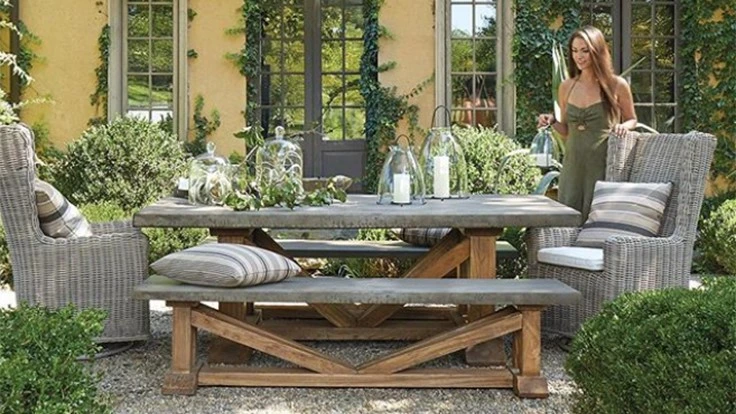
Many companies like Amazon and Starbucks, both based in Seattle, are incorporating more recycled resources to support sustainable initiatives. The furniture industry has also noticed this trend and has increased its part in using recycled plastics, woods and metals when creating its products. Upcycling and the use of vintage pieces have always been a popular trend in interior decorating. Building off this idea, furniture companies are coming up with ways to integrate recycled and reclaimed materials in the core of their mission. By adopting the mindset that there is already an abundance of usable materials, furniture retailers are finding their role in the circular economy.
Creating recycled products that contribute to the circular model is important to European furniture company Pentatonic. Its selection of chairs, tables, pillows and other goods are not only created from postconsumer waste, but also built to someday be recycled again. Many of its products use recycled plastic, a material that co-founders Jamie Hall and Johann Boedecker believe to be filled with untapped potential.
With more than 480 billion plastic bottles purchased in 2017, the duo made it a point to make use of the excess plastic in their building materials. Since it is a pliable and flexible material, Pentatonic can use polyethylene (PET) found in plastic bottles in its upholstery and seating. Through working with waste management companies in Europe and Taiwan-based international upcycling company Miniwizan, Boedecker and Hall are also transforming other recycled products like glass from electronics into glassware, tables and hangers.
While Pentatonic is a relatively new startup, Emeco, Hanover, Pennsylvania, is a furniture maker that has been using salvaged aluminum since World War II. The company’s name stands for Electrical Machine and Equipment Co. and started employing local steelworkers to make chairs specifically for warships and sailors. Today, Emeco still stands by its mission of making chairs strong enough to withstand armies, but now make its products for restaurants, hotels and offices.
The company's original 77-step process to make its products includes welding soft recycled aluminum, treating the metal in a 960-degree salt bath and baking the chairs before polishing them three times by hand. The company says its process uses reclaimed materials and turns them into furniture products three times stronger than steel. To build its signature 111 Navy Chair, Emeco takes advantage of truckloads of PET bales on a weekly basis that contains more than 20,000 bottles. Since 2010, this method has kept 21 million plastic bottles out of landfills, Emeco says, and it plans to keep building that number. The company’s products come with a buy-back guarantee to reuse materials.
Arhaus Furniture, Cleveland, is also incorporating recycled products into its collection. Arhaus sources recycled copper from Mexico as part of its dining room furniture collection, creating sets that have been melted down and molded. After the metal has been melted down, cured and wood fired, the tops are hand pounded hundreds of times before being finalized with wax. The copper tables are made in a region of Mexico where monarch butterflies migrate annually. To add a personalized touch, each table is embossed with a signature monarch butterfly to signify the orientation of the design. Along with the recycled tables, Arhaus also draws inspiration from the outdoors by using reclaimed materials like petrified wood to create creative tables options.
Swedish furniture company Ikea is also not shying away from its role in sustainability and has set a goal to reach 100 percent recycled materials by 2020. It has already committed to using organic cotton that comes from farmers that use less water, chemical fertilizers and pesticides. It includes recycled materials in its wood products and have phased out oil-based polystyrene in its flat packs, replacing them with fully recyclable materials. Since initiating its People and Planet Positivity Sustainability strategy in 2012, it has been introducing several programs like its mattress recycling program and more fully recycled products and inspired collections. With furniture brands as large as Ikea being at the forefront of these initiatives, more and more companies will follow its lead and adopt the use of recycled products and sustainable practices.
Latest from Recycling Today
- BMW Group, Encory launch 'direct recycling’ of batteries
- Loom Carbon, RTI International partner to scale textile recycling technology
- Goodwill Industries of West Michigan, American Glass Mosaics partner to divert glass from landfill
- CARI forms federal advocacy partnership
- Monthly packaging papers shipments down in November
- STEEL Act aims to enhance trade enforcement to prevent dumping of steel in the US
- San Francisco schools introduce compostable lunch trays
- Aduro graduates from Shell GameChanger program





